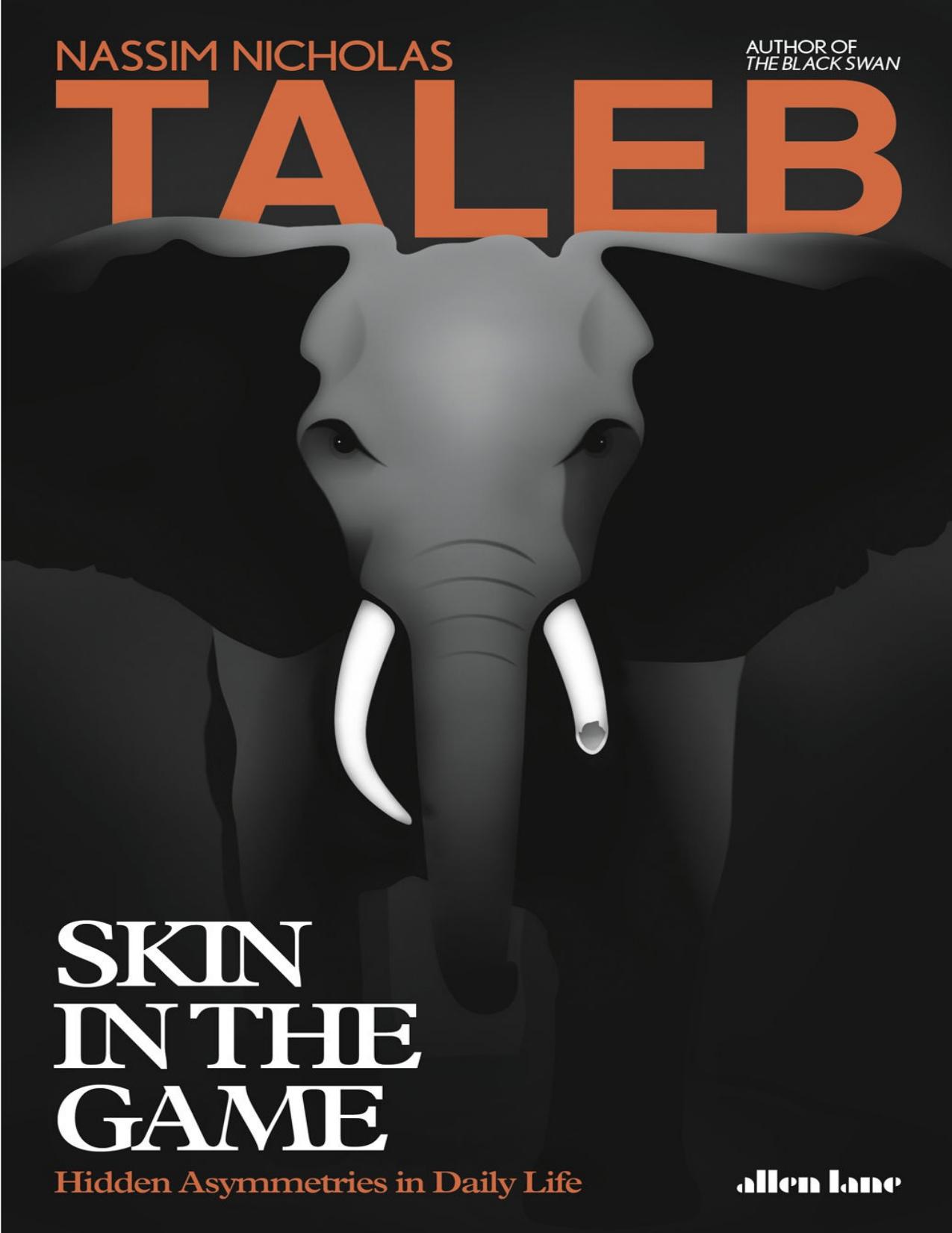Skin in the Game: Hidden Asymmetries in Daily Life by Nassim Nicholas Taleb

Author:Nassim Nicholas Taleb [Taleb, Nassim Nicholas]
Language: eng
Format: epub, mobi, azw3, pdf
ISBN: 9780241247488
Publisher: Penguin Books Ltd
Published: 2018-02-20T00:00:00+00:00
COBBLER ENVIES COBBLER
The reason regular people are not as acrimonious as the “intellectuals” and bureaucrats is because envy does not travel long distance or cross many social classes. Envy does not originate with the impoverished, concerned with the betterment of their condition, but with the clerical class. Simply, it looks like it was the university professors (who have “arrived”) and people who have permanent stability of income, in the form of tenure, governmental or academic, who bought heavily into Piketty’s argument. From conversations, I became convinced that people who counterfactual upwards (i.e., compare themselves to those richer) want to actively dispossess the rich. As with all communist movements, it is often the bourgeois or clerical classes who are the early adopters of revolutionary theories. So class envy doesn’t originate from a truck driver in South Alabama, but from a New York or Washington, D.C., Ivy League–educated IYI (say Paul Krugman or Joseph Stiglitz) with a sense of entitlement, upset some “less smart” persons are much richer.
Aristotle, in his Rhetoric, postulated that envy is something you are more likely to encounter in your own kin: lower classes are more likely to experience envy toward their cousins or the middle class than toward the very rich. And the expression Nobody is a prophet in his own land, making envy a geographical thing (mistakenly thought to originate with Jesus), originates from that passage in the Rhetoric. Aristotle himself was building on Hesiod: cobbler envies cobbler, carpenter envies carpenter. Later, Jean de La Bruyère wrote that jealousy is to be found within the same art, talent, and condition.fn10
So I doubt Piketty bothered to ask blue-collar Frenchmen what they want, as Michelle Lamont did (as we saw earlier in the chapter). I am certain that they would ask for better beer, a new dishwasher, or faster trains for their commute, not to bring down some rich businessman invisible to them. But, again, people can frame questions and portray enrichment as theft, as was done before the French Revolution, in which case the blue-collar class would ask, once again, for heads to roll.fn11
Download
Skin in the Game: Hidden Asymmetries in Daily Life by Nassim Nicholas Taleb.mobi
Skin in the Game: Hidden Asymmetries in Daily Life by Nassim Nicholas Taleb.azw3
Skin in the Game: Hidden Asymmetries in Daily Life by Nassim Nicholas Taleb.pdf
This site does not store any files on its server. We only index and link to content provided by other sites. Please contact the content providers to delete copyright contents if any and email us, we'll remove relevant links or contents immediately.
International Integration of the Brazilian Economy by Elias C. Grivoyannis(57706)
The Radium Girls by Kate Moore(11017)
Turbulence by E. J. Noyes(7176)
Nudge - Improving Decisions about Health, Wealth, and Happiness by Thaler Sunstein(6732)
The Black Swan by Nassim Nicholas Taleb(6312)
Pioneering Portfolio Management by David F. Swensen(5687)
Rich Dad Poor Dad by Robert T. Kiyosaki(5281)
Zero to One by Peter Thiel(4939)
Man-made Catastrophes and Risk Information Concealment by Dmitry Chernov & Didier Sornette(4885)
Secrecy World by Jake Bernstein(3881)
Millionaire: The Philanderer, Gambler, and Duelist Who Invented Modern Finance by Janet Gleeson(3660)
Skin in the Game by Nassim Nicholas Taleb(3557)
The Age of Surveillance Capitalism by Shoshana Zuboff(3512)
The Money Culture by Michael Lewis(3365)
Skin in the Game: Hidden Asymmetries in Daily Life by Nassim Nicholas Taleb(3337)
Bullshit Jobs by David Graeber(3287)
The Dhandho Investor by Mohnish Pabrai(3231)
The Wisdom of Finance by Mihir Desai(3154)
Blockchain Basics by Daniel Drescher(2964)
